Postoperative Pain
How to submit an article:
- Registered users can submit any published journal article that has a unique DOI (Digital Object Identifier) name or link to Research Hub.
- For example, you can paste the full DOI link:
https://doi.org/10.1109/5.771073or just the DOI name:10.1109/5.771073into the field above and click submit. - The person who is first to submit a valid article to Research Hub will forever be credited for it, and every article submission earns you +6 Research Points.
Published research studies are articles that present the findings of original research that has undergone a peer-review process and has been made publicly available in scholarly journals, books or other media.
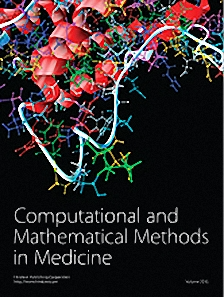
Three Acupuncture Methods for Postoperative Pain in Mixed Hemorrhoids: A Systematic Review and Network Meta-Analysis
2022 Sep 26 Computational and Mathematical Methods in Medicine Ye S, Zhou J, Guo X, Jiang X
Acupoint application can improve the overall efficiency, reduce pain scores, and relieve the degree of postoperative pain in mixed hemorrhoids.
Systematic Review Meta-Analysis
A combination of electroacupuncture and auricular acupuncture for postoperative pain after abdominal surgery for gynaecological diseases: A randomized controlled trial
2022 Sep Phytomedicine Lam WL, Wang J, Yeung WF, Cheung CW, Chan KKL, Ngan HYS, et al.
Perioperative acupuncture treatments are safe and feasible, but the efficacy of acupuncture is inconclusive.
Randomised Controlled Trial Ear Acupuncture Electroacupuncture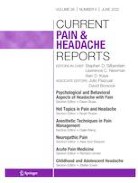
Acupuncture and Postoperative Pain Reduction
2022 Apr 28 Current Pain and Headache Reports Shah S, Godhardt L, Spofford C
Postoperative PainAcupuncture is a low-risk method that has the potential to enhance perioperative analgesia, decrease opioid requirement, and reduce unwanted side effects of anesthesia, surgery, and opioid administration such as nausea/vomiting.
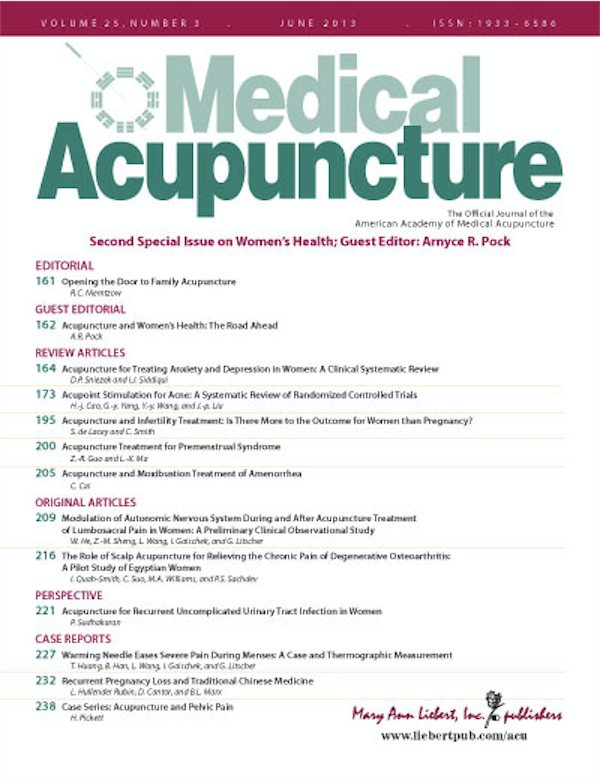
Integration of Doctor of Acupuncture and Oriental Medicine (DAOM) Students in a Trauma Center's Acute Pain Service: In-Person and Remote Training and Patient Care
2022 Apr 01 Medical Acupuncture Lumiere K, Zhang R, Lesnik I, Bayer S, Metcalf C, Gordon DB
Collaboration between academic and clinical programs can safely integrate acupuncture into hospital settings, providing significant benefits to patients and educational value to students.
Cohort Study Clinical Study Acute Pain Acupuncture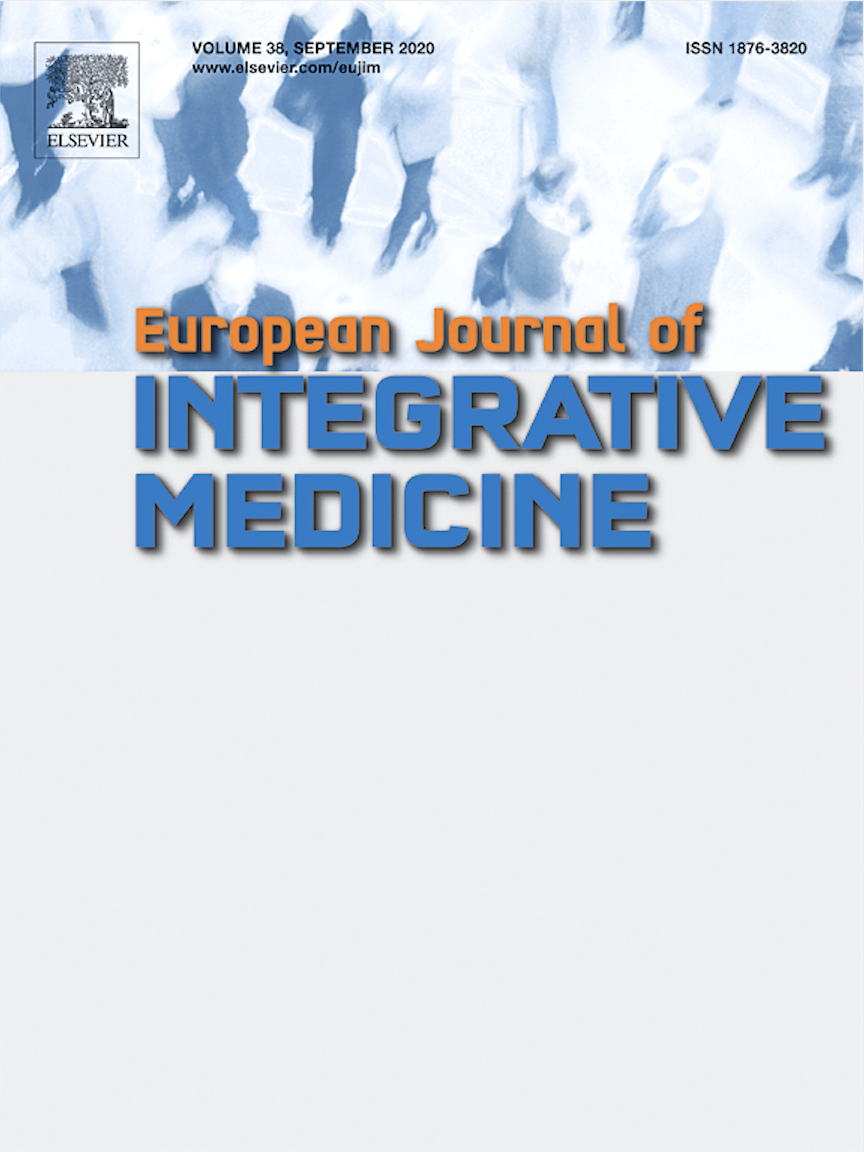
Acupuncture and related techniques for postoperative pain after hemorrhoidectomy: A systematic review and network meta-analysis
2020 Aug European Journal of Integrative Medicine Qin D, Zhang AM, Chen M, Tang TC, Du YJ, Zheng H
Systematic Review Meta-Analysis Haemorrhoids Acupressure Ear Acupuncture Postoperative PainAuricular acupressure combined with acupuncture showed the highest effectiveness in reducing post-hemorrhoidectomy pain.
Research insights are moderated by the Research Hub team and offer an at-a-glance overview of interesting research findings.

2022 Current Pain and Headache Reports
Acupuncture is a low-risk method that has the potential to enhance perioperative analgesia, decrease opioid requirement, and reduce unwanted side effects of anesthesia, surgery, and opioid administration such as nausea/vomiting.
Acupuncture and Postoperative Pain Reduction
Shah S, Godhardt L, Spofford C

2020 European Journal of Integrative Medicine
Auricular acupressure combined with acupuncture showed the highest effectiveness in reducing post-hemorrhoidectomy pain.
Systematic Review Acupressure Ear Acupuncture Haemorrhoids
Acupuncture and related techniques for postoperative pain after hemorrhoidectomy: A systematic review and network meta-analysis
Qin D, Zhang AM, Chen M, Tang TC, Du YJ, Zheng H

2016 PLOS One
Certain modes of acupuncture improved postoperative pain on the first day after surgery and reduced opioid use. Our findings support the use of acupuncture as adjuvant therapy in treating postoperative pain.
Systematic Review
The Efficacy of Acupuncture in Post-Operative Pain Management: A Systematic Review and Meta-Analysis
Wu M-S, Chen K-H, Chen I-F, Huang SK, Tzeng P-C, Yeh M-L, et al.
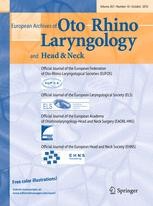
2014 European Archives of Oto-Rhino-Laryngology
Administering honey postoperatively can significantly lessen pain and foster improved wound healing following tonsillectomy.
Systematic Review Honey Pain relief Tonsillectomy
The efficacy of honey for ameliorating pain after tonsillectomy: a meta-analysis
Hwang SH, Song JN, Jeong YM, Lee YJ, Kang JM
Review Articles
Review articles summarise and critically evaluate the current state of research on a specific topic or field by synthesising multiple primary research studies.

Three Acupuncture Methods for Postoperative Pain in Mixed Hemorrhoids: A Systematic Review and Network Meta-Analysis
2022 Sep 26 Computational and Mathematical Methods in Medicine Ye S, Zhou J, Guo X, Jiang X
Acupoint application can improve the overall efficiency, reduce pain scores, and relieve the degree of postoperative pain in mixed hemorrhoids.
Systematic Review Meta-Analysis
Acupuncture and related techniques for postoperative pain after hemorrhoidectomy: A systematic review and network meta-analysis
2020 Aug European Journal of Integrative Medicine Qin D, Zhang AM, Chen M, Tang TC, Du YJ, Zheng H
Systematic Review Meta-Analysis Haemorrhoids Acupressure Ear Acupuncture Postoperative PainAuricular acupressure combined with acupuncture showed the highest effectiveness in reducing post-hemorrhoidectomy pain.

The Efficacy of Acupuncture in Post-Operative Pain Management: A Systematic Review and Meta-Analysis
2016 Mar 9 PLOS One Wu M-S, Chen K-H, Chen I-F, Huang SK, Tzeng P-C, Yeh M-L, et al.
Systematic Review Meta-AnalysisCertain modes of acupuncture improved postoperative pain on the first day after surgery and reduced opioid use. Our findings support the use of acupuncture as adjuvant therapy in treating postoperative pain.

The efficacy of honey for ameliorating pain after tonsillectomy: a meta-analysis
2014 Dec 19 European Archives of Oto-Rhino-Laryngology Hwang SH, Song JN, Jeong YM, Lee YJ, Kang JM
Systematic Review Meta-Analysis Pain relief Honey TonsillectomyAdministering honey postoperatively can significantly lessen pain and foster improved wound healing following tonsillectomy.
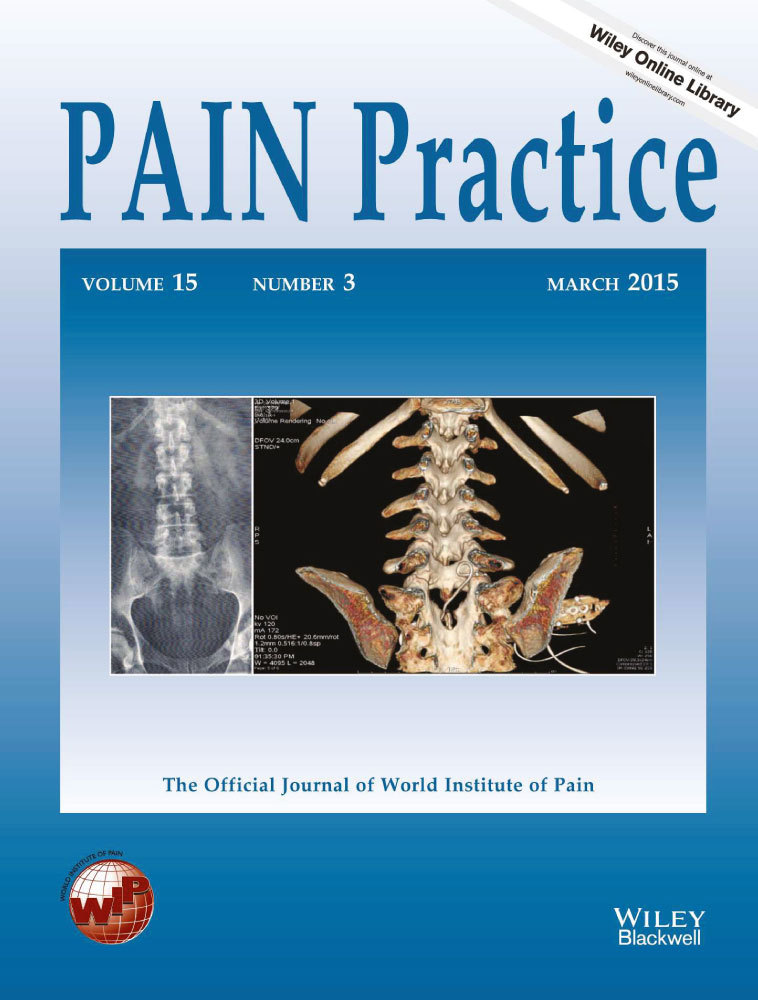
Acupuncture for Acute Postoperative Pain after Back Surgery: A Systematic Review and Meta‐analysis of Randomized Controlled Trials
2014 Apr 28 Pain Practice Cho YH, Kim CK, Heo KH, Lee MS, Ha IH, Son DW, et al.
Our systematic review finds encouraging but limited evidence for the effectiveness of acupuncture treatment for acute postoperative pain after back surgery. Further rigorously designed clinical trials are required.
Systematic Review Postoperative PainClinical Trials
Clinical trials are research studies that involve people and are conducted to evaluate the safety and efficacy of new treatments or interventions, such as drugs, medical devices, or behavioural therapies.

A combination of electroacupuncture and auricular acupuncture for postoperative pain after abdominal surgery for gynaecological diseases: A randomized controlled trial
2022 Sep Phytomedicine Lam WL, Wang J, Yeung WF, Cheung CW, Chan KKL, Ngan HYS, et al.
Perioperative acupuncture treatments are safe and feasible, but the efficacy of acupuncture is inconclusive.
Randomised Controlled Trial Ear Acupuncture Electroacupuncture
Effects of Electroacupuncture Administered 24 hours Prior to Surgery on Postoperative Nausea and Vomiting and Pain in Patients Undergoing Gynecologic Laparoscopic Surgery: A Feasibility Study
2017 Sep Explore: The Journal of Science & Healing Li S, Zheng M, Wu W, Guo J, Ji F, Zheng Z
In a randomized controlled trial with 40 patients, EA was delivered at bilateral neiguan (PC6) and zusanli (ST36) points within 24 hours prior to surgery. The EA group exhibited a lower incidence of postoperative nausea and vomiting in the first six hours compared to the usual care (UC) group. Postoperative pain was significantly lower in the EA group at six hours postoperative, and the EA group had a shorter time to pass the first flatus compared to the UC group. Adverse effects of EA were minor and well-tolerated. The study suggests that one-session preoperative EA is feasible, safe, and may reduce postoperative pain and accelerate gastrointestinal motility.
Randomised Controlled Trial Vomiting Electroacupuncture
The effects of acupuncture after thyroid surgery: A randomized, controlled trial
2014 Dec 1 Surgery Iacobone M, Citton M, Zanella S, Scarpa M, Pagura G, Tropea S, et al.
This academic research showed high efficacy of acupuncture for pain relief after thyroid surgery. Patients with regular acupuncture treatments required less pain killers and experienced less side effects.
Randomised Controlled Trial Thyroid Disease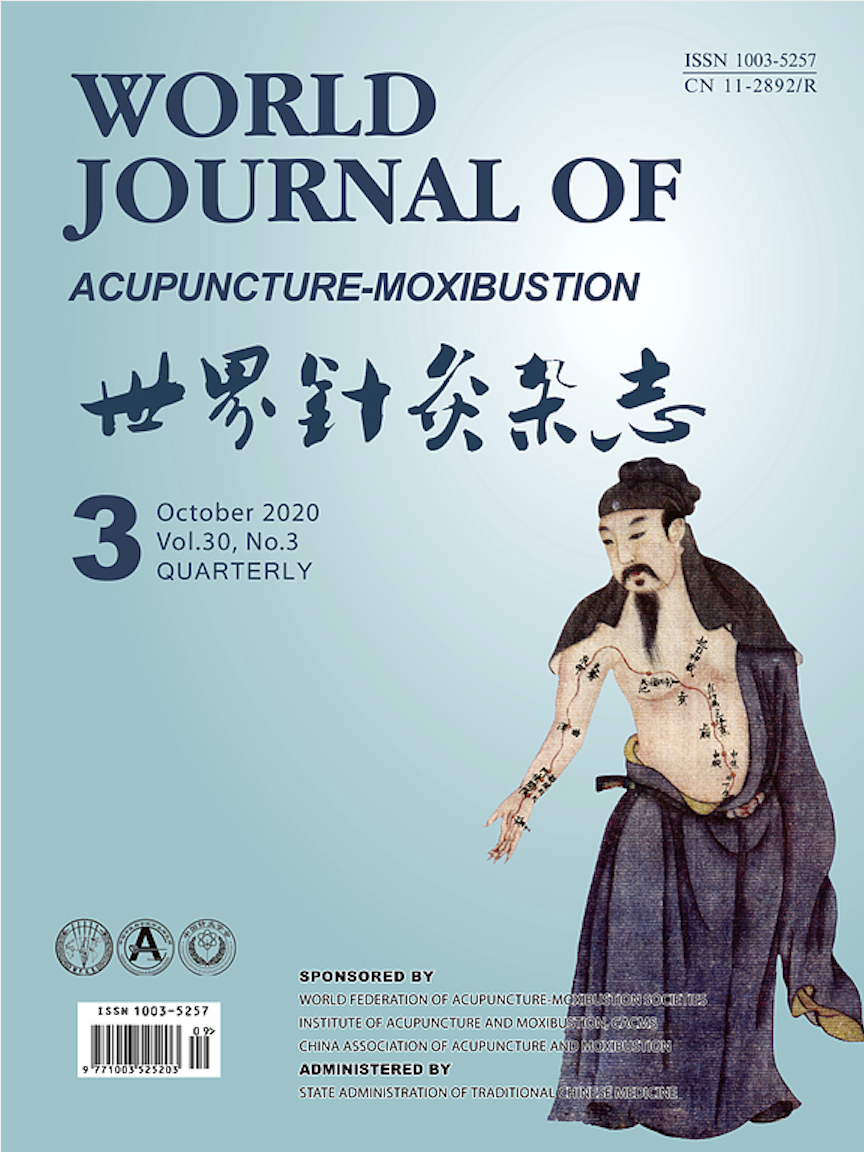
Observation on effect of electroacupuncture of different frequencies on patients after thyroid surgery: a randomized controlled trial
2014 Dec World Journal of Acupuncture-Moxibustion FAN W, MA W, WANG Y, FU G, SHEN W
Acupuncture anesthesia combined with drugs demonstrates superior postoperative effects compared to drug anesthesia alone. Electroacupuncture at different frequencies (2 Hz, 100 Hz, and 2 Hz/100 Hz) significantly improves the general quality of life in patients after thyroid surgery. The group receiving 2 Hz/100 Hz electroacupuncture exhibits the least postoperative pain and the highest quality of life, suggesting that this frequency combination is particularly effective for postoperative analgesia.
Randomised Controlled Trial ElectroacupunctureStudy Protocols
Published study protocols are detailed plans that outline the objectives, methodology, statistical analyses, and organisation of a research study that have been made publicly available for others to review and use as a reference.
Presentation Slides

Acupuncture is a low-risk method that has the potential to enhance perioperative analgesia, decrease opioid requirement, and reduce unwanted side effects of anesthesia, surgery, and opioid administration such as nausea/vomiting.
Shah S, Godhardt L, Spofford C

Systematic Review
Auricular acupressure combined with acupuncture showed the highest effectiveness in reducing post-hemorrhoidectomy pain.
Qin D, Zhang AM, Chen M, Tang TC, Du YJ, Zheng H

Systematic Review
Certain modes of acupuncture improved postoperative pain on the first day after surgery and reduced opioid use. Our findings support the use of acupuncture as adjuvant therapy in treating postoperative pain.
Wu M-S, Chen K-H, Chen I-F, Huang SK, Tzeng P-C, Yeh M-L, et al.

Systematic Review
Administering honey postoperatively can significantly lessen pain and foster improved wound healing following tonsillectomy.
Hwang SH, Song JN, Jeong YM, Lee YJ, Kang JM
Executive Summary
Write an executive summary in the form of a blog article on the topic of "Research into Chinese medicine treatment for Postoperative Pain" summarising the research below and using language that can be easily understood by patients and avoiding medical jargon using a professional and caring tone of voice.
Write an executive summary in the form of a blog article on the topic of "Researched Chinese medicine treatments for Postoperative Pain" summarising the research below in an objective and easy to understand way, and using language that can be easily understood by patients. Group the article into Chinese medicine treatments first, followed by nutrition and other treatments. Avoid using medical jargon and use a professional and caring tone of voice.
Write me a concise but easy to understand executive summary on the topic of "Chinese medicine treatments for Postoperative Pain" based on the following research that I will give you. Your summary should be 2 paragraphs long in Australian English spelling and include references to the studies.
A published in 2022 in the journal Current Pain and Headache Reports found that Acupuncture is a low-risk method that has the potential to enhance perioperative analgesia, decrease opioid requirement, and reduce unwanted side effects of anesthesia, surgery, and opioid administration such as nausea/vomiting. Patients undergoing abdominal, spine/neuro, and gynecologic pelvic surgery generally benefit from acupuncture. Out of the various acupuncture techniques, electroacupuncture, transcutaneous electric acupoint stimulation, and traditional total body acupuncture seem to be most promising as adjuncts to multimodal perioperative analgesia. Benefits include improved analgesia and/or reduced narcotic requirements, decrease in PONV, and shorter time to return of bowel function.
A Systematic Review published in 2020 in the journal European Journal of Integrative Medicine found that Auricular acupressure combined with acupuncture showed the highest effectiveness in reducing post-hemorrhoidectomy pain. A systematic review and network meta-analysis was used to identify the comparative efficiency of various acupuncture-related techniques for pain relief following hemorrhoidectomy. Searches were conducted across several databases, including MEDLINE, Embase, the Cochrane Library Chinese biomedical database, and China journal full-text database, from January 1, 1996, to February 1, 2020. The search targeted randomized controlled trials assessing the effectiveness of acupuncture and related techniques. The Cochrane risk of bias instrument and GRADE were used to determine the quality of the included trials, and the data were processed using a random-effects model. The study analyzed 107 randomized controlled trials, assessing the relative effectiveness of 40 treatments technique and 48 randomized controlled trials were used to analyze a responder rate. The results showed that Auricular acupressure plus acupuncture, acupuncture, other acupuncture techniques and auricular acupressure were significantly more effective than usual care. Furthermore, auricular acupressure plus acupuncture emerged as the most effective treatment. An additional round of analysis that focused on pain intensity was carried out, using 72 of the original randomized controlled trials. This study found that offering eight treatments had a higher effectiveness compared to usual care, with auricular acupressure plus acupuncture emerging as the most potent relief method.
A Systematic Review published in 2016 in the journal PLOS One found that Certain modes of acupuncture improved postoperative pain on the first day after surgery and reduced opioid use. Our findings support the use of acupuncture as adjuvant therapy in treating postoperative pain. Our study found that acupuncture and related techniques one day following surgery significantly reduced postoperative pain and the use of opioids. Unlike Sun et al, we also performed subgroup analysis and found that conventional acupuncture and transcutaneous electric acupoint stimulation (TEAS) may be more efficacious than electroacupuncture as adjuvant therapy to manage postoperative pain. Additional well designed studies are required to further explore the role of acupuncture and related methods in treating postoperative pain.
A Systematic Review published in 2014 in the journal European Archives of Oto-Rhino-Laryngology found that Administering honey postoperatively can significantly lessen pain and foster improved wound healing following tonsillectomy. The methodology for this research consisted of an in-depth systematic review, complemented by a meta-analysis, focused on the effectiveness of honey used as a treatment for postoperative pain and wound healing following tonsillectomy. Following the independent exploration of database records, including MEDLINE, SCOPUS, and Cochrane databases, by two authors, studies that compared postoperative oral administration of honey to placebo were pinpointed, with the outcomes of interest being pain and wound healing on post-operative days. Criteria for data extraction included baseline study characteristics, study quality, patient numbers in honey-treated and control groups, and outcomes of treatment. Across the selected 4 trials, a total of 264 patients provided sufficient data for conducting the meta-analysis. Discussion of the research findings revealed that the honey-treated group experienced a significant decrease in pain during postoperative day 1, in comparison to the placebo-treated group, as rated by patient-reported pain scores. The analgesic intake for the honey-treated group during the first five days after the operation was also markedly reduced compared to that of the placebo-treated group. Moreover, significantly enhanced wound healing was observed two weeks post-operation for the patients treated with honey compared to those given a placebo.
Moderation Tools
Topic
Sign In
Users not signed in are limited to viewing the 5 most recent items of content.
